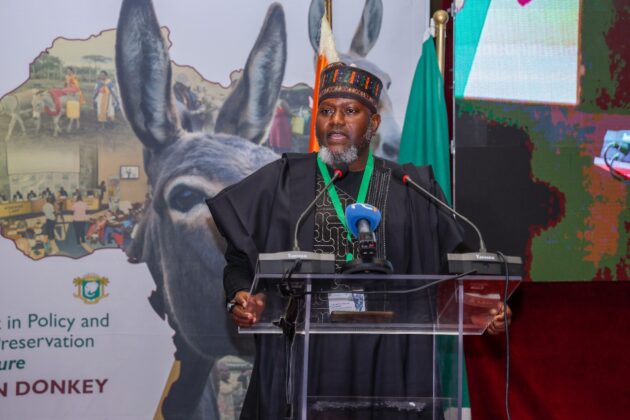
Africa Unites to Save Donkeys as PADCO-2 Validates Historic Strategy » Capital News
ABIDJAN, Côte d’Ivoire, Jul 1 – The Second Pan-African Donkey Conference (PADCO-2) closed with a strong continental call to action, delivering three historic outcomes to preserve Africa’s rapidly declining donkey population.
Held under the theme “Africa’s Commitment in Policy and Practice to Donkey Preservation Now and in the Future,” the high-level gathering was convened by AU-IBAR and ICWE partners, and hosted by the Government of Côte d’Ivoire.
The event attracted over 200 delegates, including ministers, legislators, animal welfare organisations, and civil society representatives from across Africa.
Among them were senior leaders such as Uganda’s Agriculture Minister Dr. Rwamirama Bright Kanyontore, Chad’s Hon. Abderahim Awat Atteib, and Cameroon’s Hon. Dr. Taïga.
“Africa must arise to protect the donkey population,” urged Dr. Rwamirama, a sentiment echoed by AU Commissioner Moses Vilakati, whose message—delivered by AU-IBAR Director Dr. Huyam Salih—emphasized Africa’s collective resolve to protect the species that millions depend on.
The conference marked a major milestone with the validation of the Pan-African Donkey Strategy (2026–2035)—a roadmap developed by AU-IBAR through an inclusive process.
The strategy highlights seven key pillars, including an AU-wide enforcement of the moratorium on donkey skin trade, integration of donkey welfare into national policies, and investments in value chains, veterinary services, and data systems.
The second major outcome was the Adoption of the Abidjan Declaration, a continental position reaffirming an indefinite ban on donkey slaughter for skins.
It calls for the revocation of existing licenses, coordinated crackdowns on illegal trade, and harmonized laws across AU Member States.
“We have turned the moratorium into a springboard for action,” said Commissioner Vilakati.
“Now, it is time for implementation—through law, community awareness, and surveillance.”
The third outcome was political momentum: the strategy and declaration are now set to be submitted to the AU’s Specialized Technical Committee on Agriculture and ultimately to the Assembly of Heads of State and Government.
AU-IBAR also revealed plans for a Donkey Program to drive coordination and track progress.
Scientific sessions at PADCO-2 showcased urgent evidence: research across 25 countries highlighted severe welfare gaps, reproductive health challenges, and disease risks.
In Kenya, studies revealed the informal nature of donkey markets, while ILRI research showed that donkeys contribute up to 21 percent of household income—but injury and disease reduce productivity by 28 percent.
“Together, we have made history. Now, together, we must shape the future,” concluded Commissioner Vilakati.